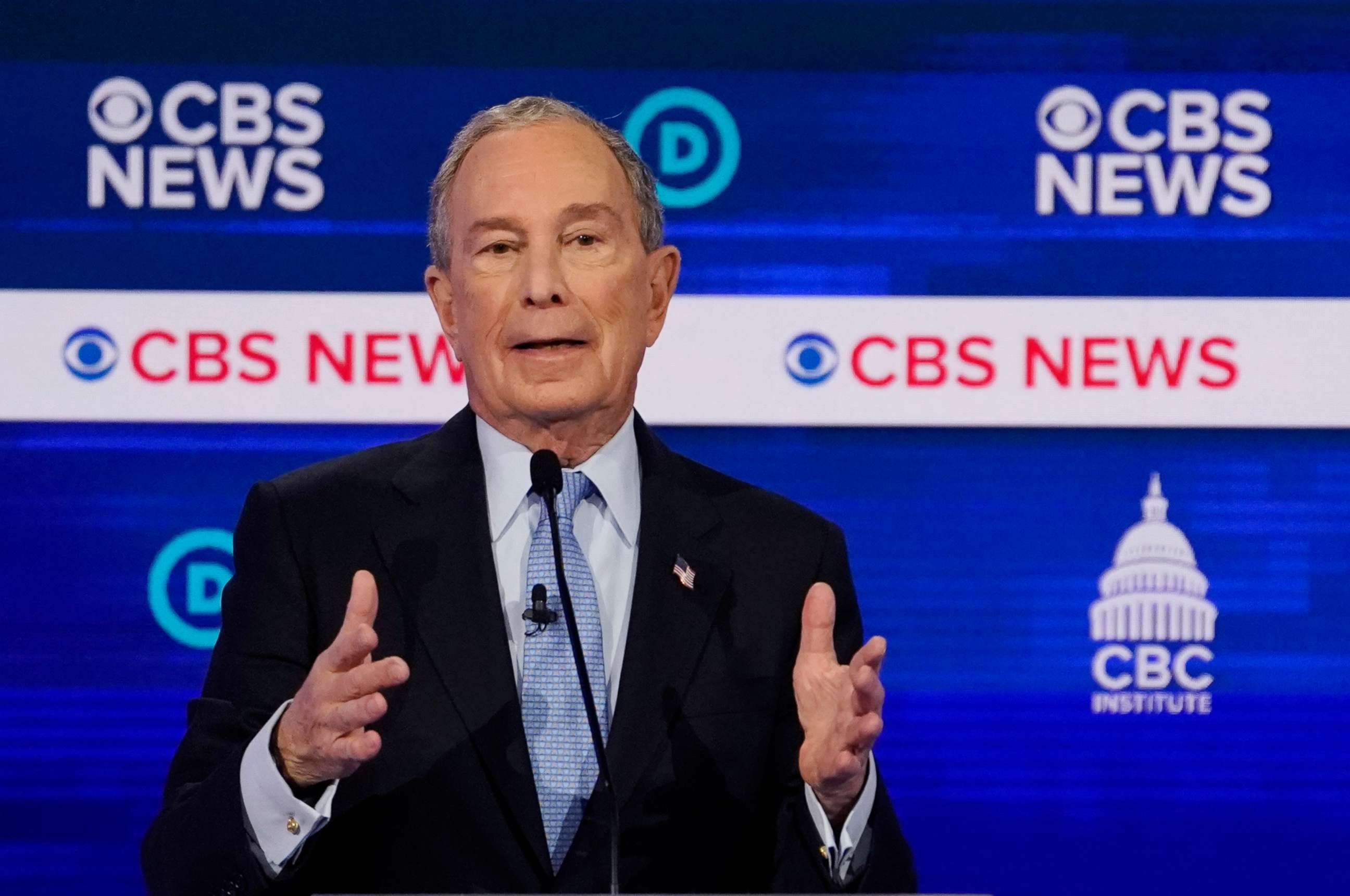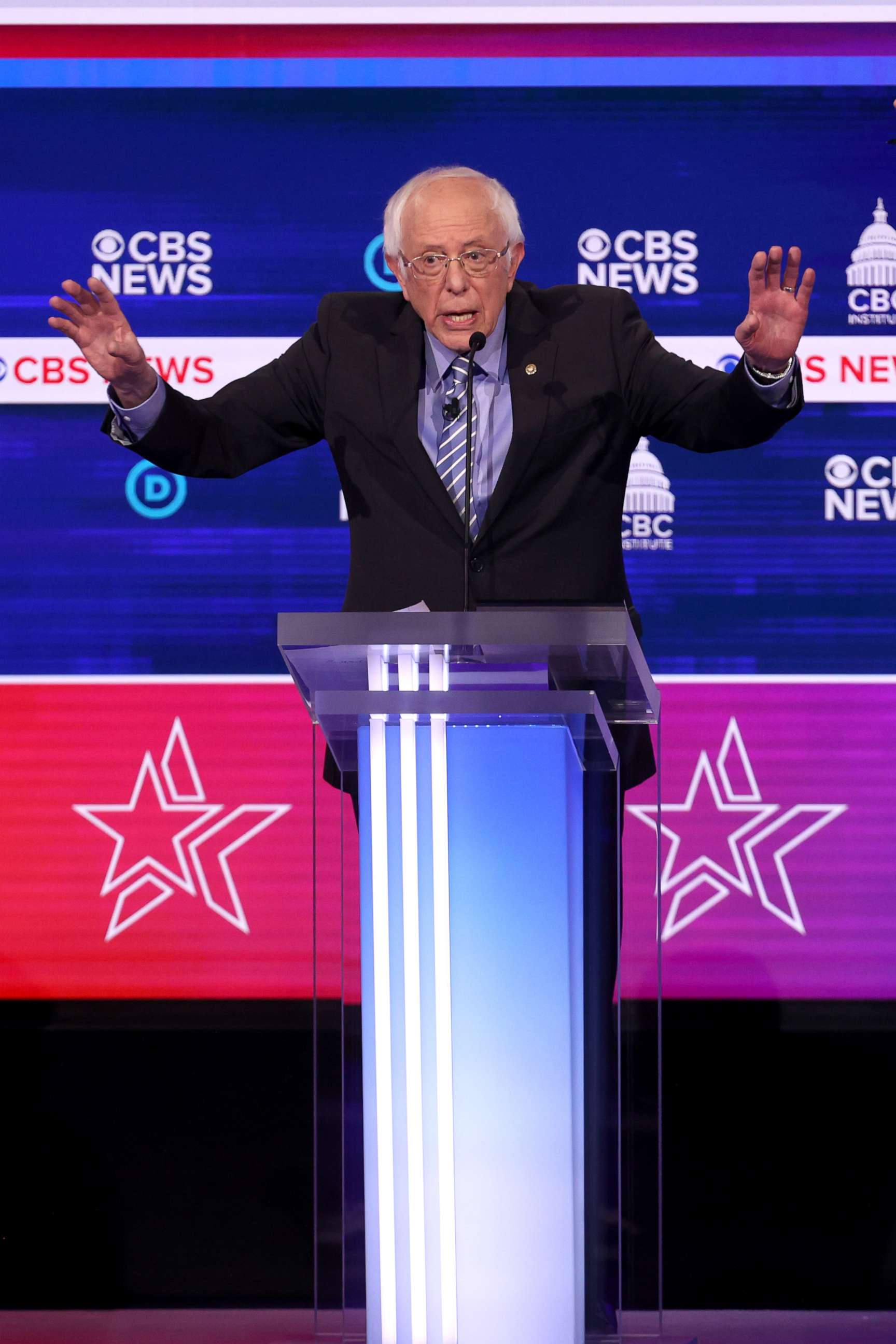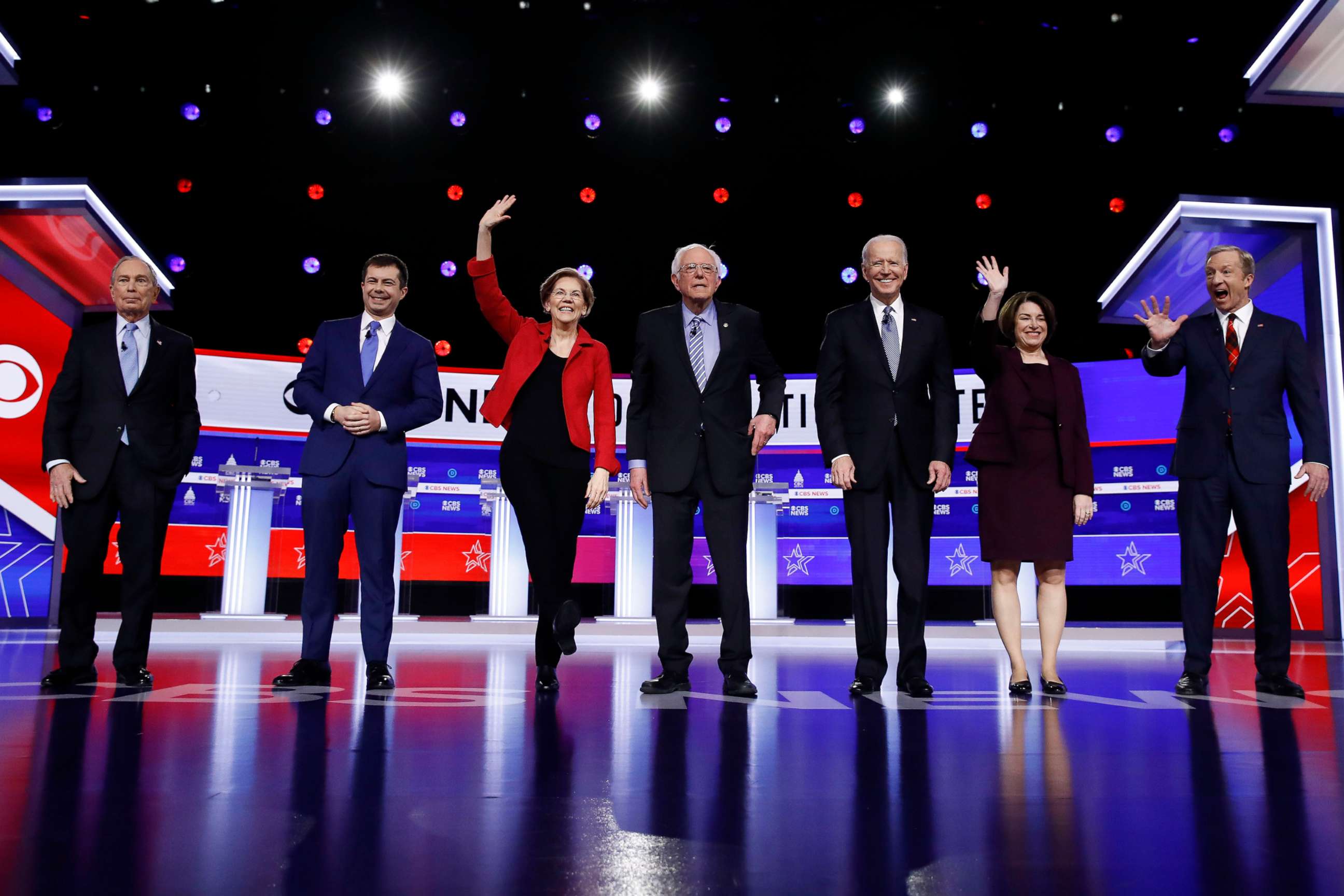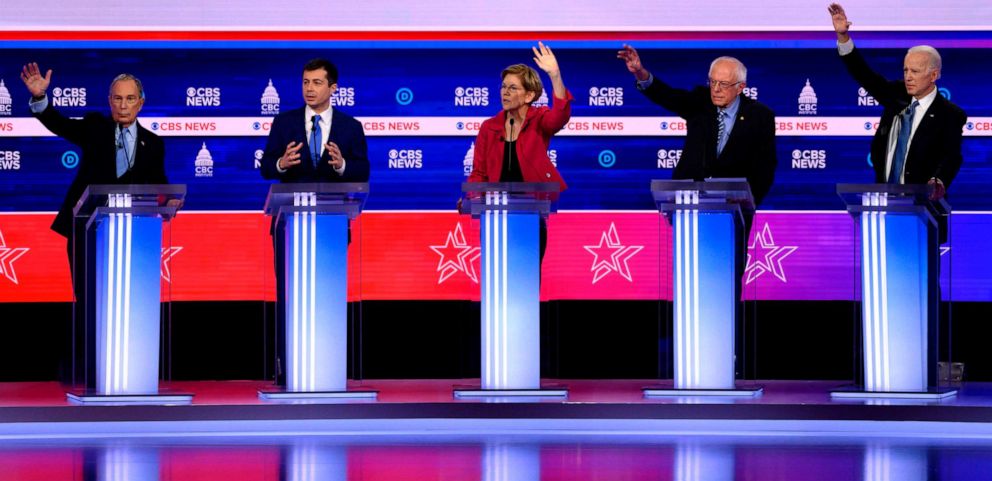Democratic debate reveals Bloomberg as main foil but Sanders as main threat: ANALYSIS
The 10th debate of the cycle was a chaotic affair.
CHARLESTON, S.C. -- The Democratic candidates seem to want to be running against Michael Bloomberg. The problem is they're primarily running against Sen. Bernie Sanders -- and some very stubborn math.
The 10th Democratic debate of the cycle was a chaotic affair -- more chaotic, in the fears of many of the campaigns, than the race actually is at the moment. The volleys came as quickly as the voting is about to, with Super Tuesday only one week away.

Tuesday night brought intense crossfire and debates within a debate -- Joe Biden vs. Tom Steyer, Pete Buttigieg vs. Amy Klobuchar, Elizabeth Warren vs. Sanders and everyone against Sanders and Bloomberg at various points.
Sanders, who is sitting on a delegate lead and is well-positioned to start pulling away a week from now, faced intense attacks on his record on guns, his support for former President Barack Obama, his foreign-policy record and his potential impact on the Democratic Party.
"Let's talk about progressive," said Biden, who is running strong in his must-win state of South Carolina and leaning heavily on his partnership with Obama. "Progressive is getting things done."
"Bernie and I agree on a lot of things, but I believe I would be a better president than Bernie," Warren said. "Progressives have got one shot, and we need to spend it with a leader who will get something done."
"I am not looking forward to a scenario where it comes down to Donald Trump with his nostalgia for the social order of the '50s and Bernie Sanders with a nostalgia for the revolution politics of the '60s," Buttigieg said.
Sanders defended himself -- though sometimes awkwardly, including when he conceded that he cast "bad votes" on gun control in the past. He seemed surprised by crowd booing when he swung back at his rivals and when he defended recent favorable comments he made about Fidel Castro.
"Occasionally, it might be a good idea to be honest about American foreign policy," Sanders said.

Still, Sanders continues to lead the rest of the field not just in votes but in attacks on Bloomberg, whose half-billion dollars in spending and counting has put him in the Super Tuesday conversation.
Bloomberg was a useful foil, as he was at last week's debate for Nevada -- not just for Sanders, but for Warren and the rest of the field as well.
"The core of the Democratic Party will never trust him," Warren said. "He is the riskiest candidate standing on this stage."

Bloomberg seemed stronger in parrying the attacks than he did last week. Still, a joke about his last debate performance fell flat, and he seemed perilously close to saying he "bought" a House Democratic majority before correcting himself to say "got them" elected.
He also sought to keep his focus on Sanders, arguing that he's likely to lose to Trump.
"Russia is helping you get elected so you'll lose to him," Bloomberg said to Sanders. "We're going to live with this catastrophe."
The candidates stuck in between some of the main arguments offered similar fears about the party's road ahead.
"If we spend the next four months tearing each other apart, we're going to spend the next four years watching Donald Trump tear the country apart," Klobuchar said.
"We are looking at a party that has decided we're either going to support someone who is a democratic socialist or somebody who has a long history of being a Republican," Steyer said. "And I am scared."
Fear of Sanders' momentum coursed through the debate, just as it is dominating discussions inside the Democratic Party. But it's now been matched by fears of Bloomberg and a desire to attack him, with the strong possibility that he will divide the vote in upcoming states so severely that Sanders could cruise to the nomination.

The fact that there were still seven candidates on stage -- the debate field actually grew since last week, with Steyer back in the mix due to strong polling in South Carolina -- speaks to the angst about how the race is proceeding.
At a time that many in the party are desperate to focus on electability, the fact that elections are already producing results is complicating the crowded field.
There might simply be too many semi-viable candidates for any of them to emerge from the pack to challenge Sanders. It's a dynamic Bloomberg hoped to benefit from, though might end up exacerbating.
Biden needs to win South Carolina, and the rest of the candidates may need him to win the state as well. This was not Sanders' strongest debate, but this may be a point in the cycle where it's too late for that to really matter.
The candidates not named Sanders need help at this point -- for things to go wrong for others and right for them. Their fear is the party's fear: That the entire primary process could go wrong for Democrats, in a race they fear losing more than ever.




